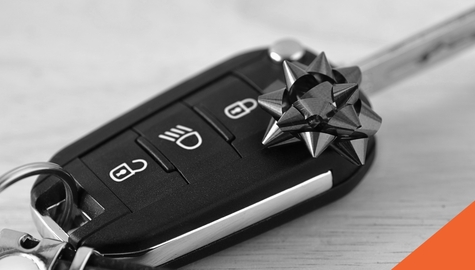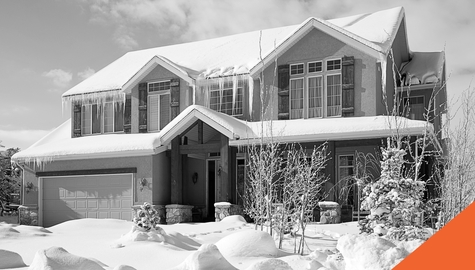What Not to Share on Social Media
Wednesday, 14 April 2021
While social media is a convenient, everyday way to connect with friends and family, there are some things that are best kept private to protect you and your loved ones. This blog is certainly not intended to stop you from sharing things with your friends or using social media, but to help you understand that what you share online might not be as protected as you think. We’ve created a helpful list of what not to share on social media to avoid the risk of a break-in or identity theft.
To share or not to share?
A study in the UK showed that 78% of burglars have admitted to using social platforms as a means to target empty homes and plan break-ins. Additionally, the information that you share includes far more detail about you than you may realize leaving you susceptible to identity theft. Think twice before you post something that gives out personal information that could put you at risk!
What Not to Share on Social Media: Vacation Details
Whether you’re headed to a cottage for the weekend or going for a long-term adventure, posting details about your vacation is a prime example of what not to share on social media. If you post while you are away from your home, your post could potentially be accessible to burglars who would take advantage of the situation. It’s hard not to want to share the excitement, but if you’re not careful with your audience, you could suffer unfortunate consequences.
Here are some ideas of what not to share on social media:
- Avoid posting dates or times of when you will be away
- Only share your itinerary with people you can trust through private messaging or secure email
- Don’t use a ‘check-in’ status at the airport or train station
- Never share pictures of passports, tickets or other documents with personal information
- Post your photos after you’ve returned home
What Not to Share on Social Media: Location
This is not just for the travelers among us, but for anyone who shares special moments through photos or videos. Believe it or not, you don’t have to intentionally tag or add your location for it to be accessible. Smartphones automatically geotags your photos with your location and most social media platforms contain metadata that includes your IP address and device information. We highly recommend turning off the geotagging feature on your smartphone to avoid sharing your whereabouts with strangers.
Turn off geotagging for iPhone/iPad.
Turn off geotagging for Android.
What Not to Share on Social Media: Personal Possessions
We get it, you’re newly engaged, and you just have to show off the ring in the perfect, Instagram-worthy engagement photo. You’ve likely shared the excitement of your newest gadget such a new TV, laptop, bike, etc. These are all examples of what not to post on social media, or at the very least, you should be selective in where and how you share these items. Sharing your valuable possessions on these platforms could essentially be putting a big target on your home for a break-in.
What Not to Share on Social Media: Your Daily Routine
While you might think burglaries take place in the cover of darkness, statistically many take place between 9am and 2pm, while people are at work or school. Sharing that you’re going to the office, meeting up with friends, or attending classes could be an open invitation for a burglar while your home is empty.
What Not to Share on Social Media: Financial & Personal Information
Hopefully this is an obvious one, but even the best of us can still get duped by engaging in seemingly harmless posts that prompt you to divulge personal information under the guise of a little fun. Look out for questions that ask you about yourself – your grandma’s maiden name, your first-grade teacher, your childhood pet’s name. Could these answers be ones you’ve used for security questions on bank accounts and other login credentials? These types of answers are prime examples of what not to share on social media because you could be putting your identity at risk.
Above all, never post details of your credit card, SIN number, or banking information. You should avoid sharing personal information as simple as your home address or pictures of your street.
Protect Your Personal Information
Thankfully there are privacy settings on sites such as Facebook and Instagram that allow you to have better control over who sees your posts. Here are a few ways tips to make your social media a safer place for you:
- Only accept friend requests from people you know personally
- Change your Instagram to private so that you can accept or deny followers
- Set Facebook privacy settings to allow only your friends to see your content
- Use private messaging to share news with close friends & family
- Set up two-factor authentication to make it harder to hack into your accounts
Protect Your Home
As much as you remain vigilant and avoid posting things we’ve mentioned, there are other steps you can take to protect your home from a burglary as well. Here are a few to get you started:
- Get monitored home security system
- Add a security camera
- Install motion sensitive lights to deter unwanted visitors
- Put your lights on timers even while away
- Have a trusted neighbour or friend check on your home and empty your mailbox while you’re gone.
For a list of ways to update your home security to prevent break-ins, read this blog post.
Now that you know what not to share on social media, you are much better prepared to prevent a breach of information that could cause an unnecessary headache! Another way to prepare is to get a reliable insurance policy that will protect your home from break-ins and identity theft. At Billyard Insurance Group, we offer so many options that can be customized to suit your preferred level of protection. Getting a home insurance quote or tenant insurance quote is quick and easy. Contact a broker today!



